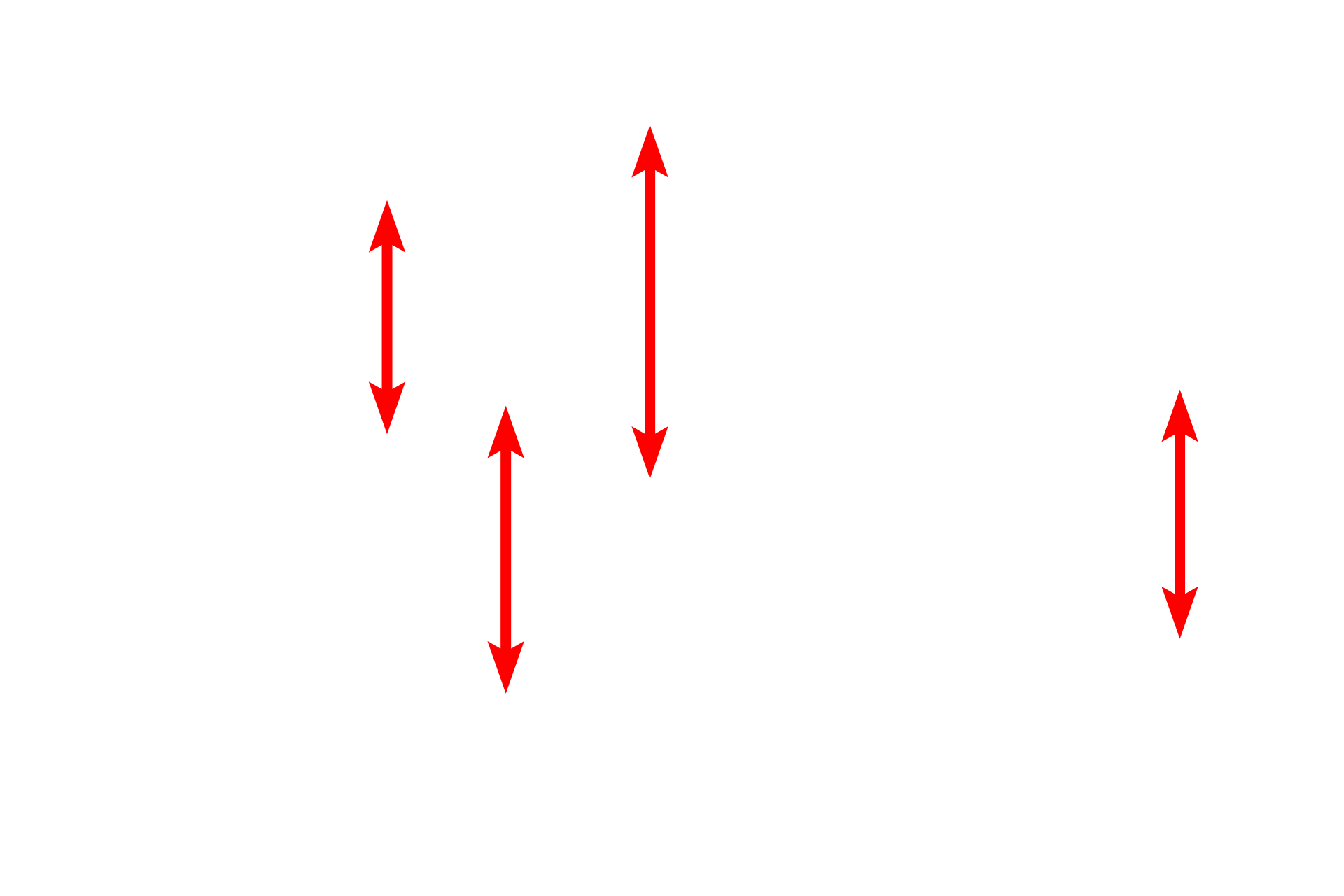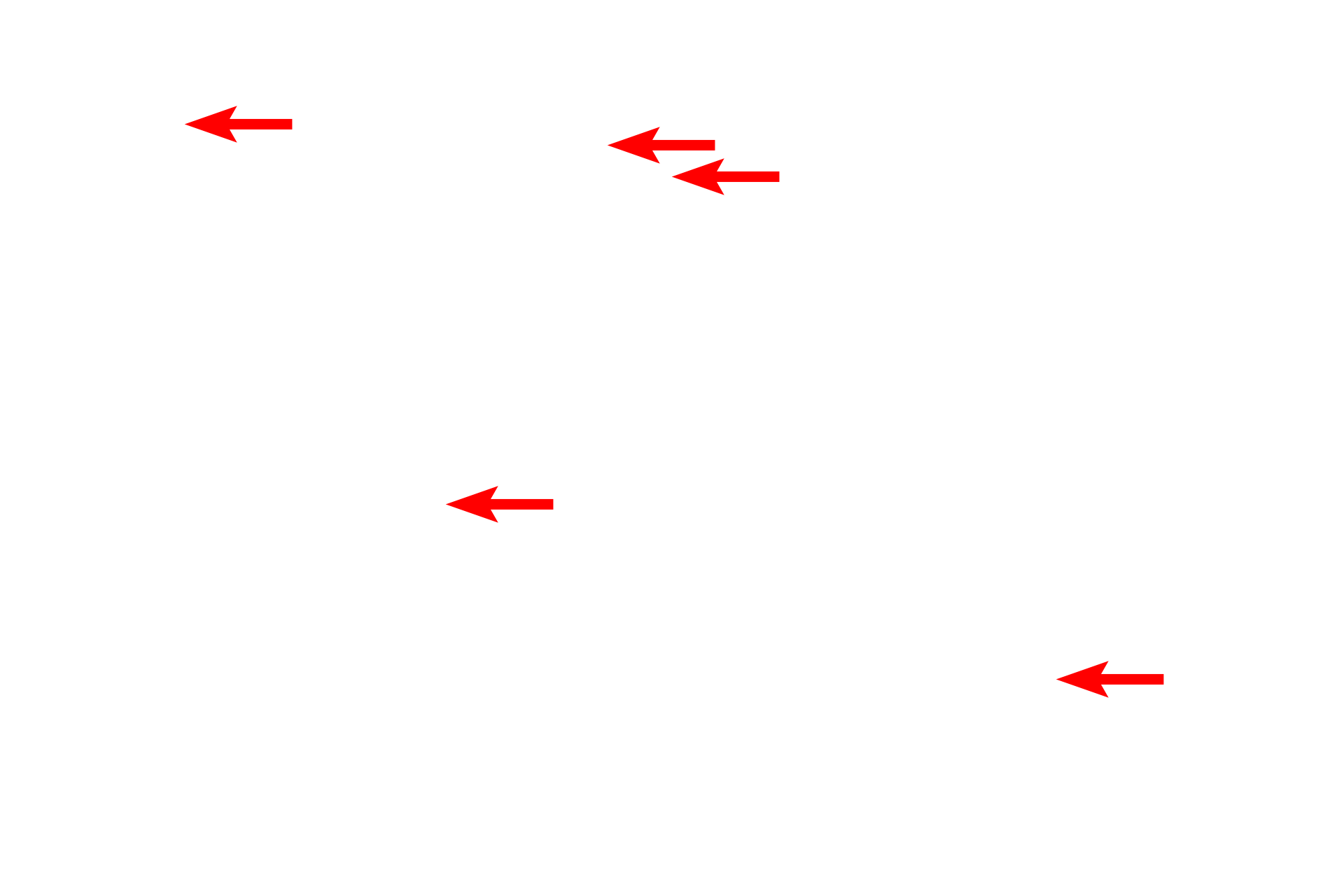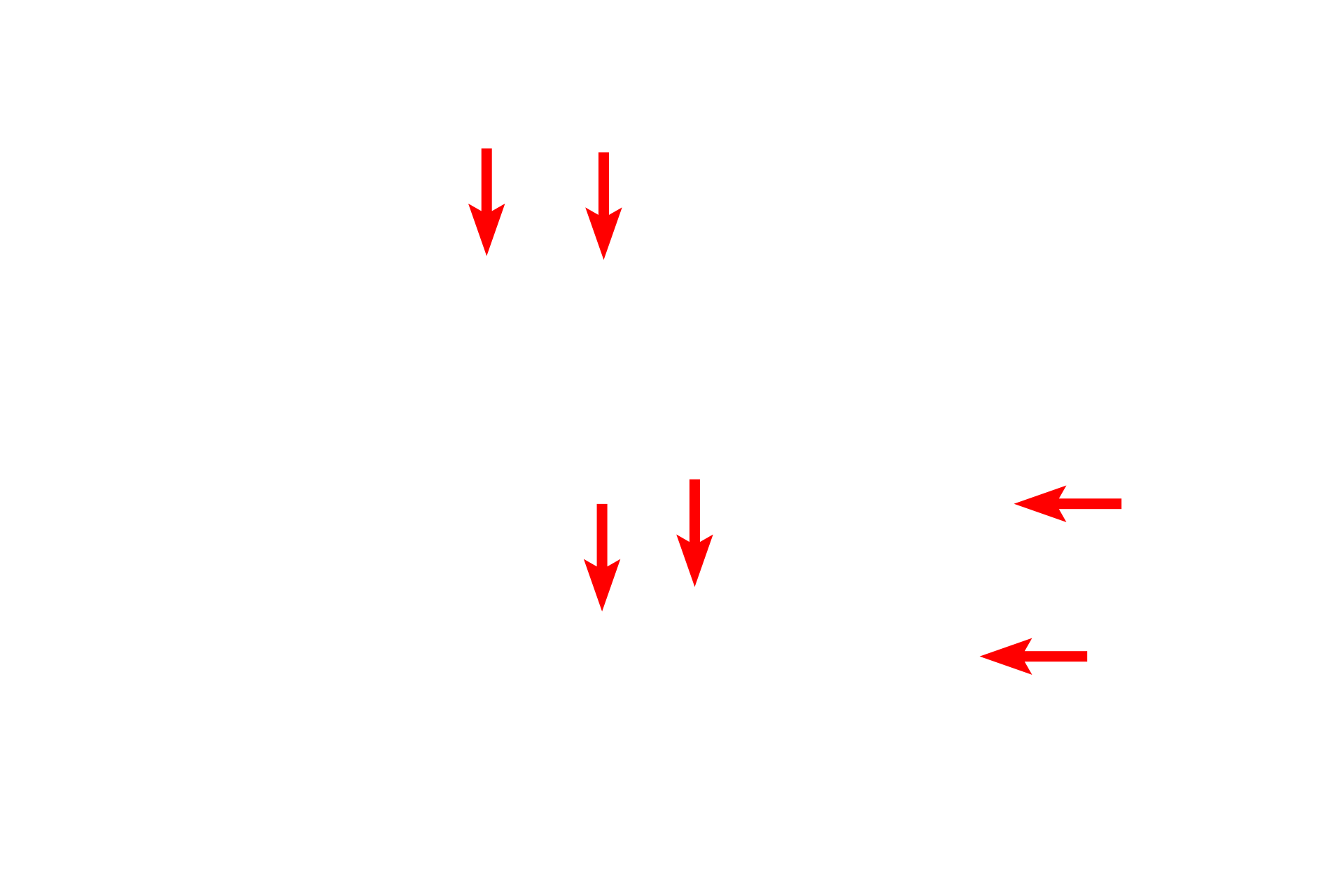
Bone matrix
This ground bone preparation of mature, lamellar bone shows additional passageways in the matrix, called Volkmann’s canals, which are oriented perpendicularly to the long axis of the osteon. Volkmann’s canals interconnect Haversian canals of adjacent osteons, conveying branches from blood vessels traveling in the Haversian canal. This extensive system of passageways is necessary as the calcified matrix prevents diffusion of nutrients and respiratory gasses. Both Volkmann’s and Haversian canals contain blood vessels and are lined by endosteum. 400x

Osteons
This ground bone preparation of mature, lamellar bone shows additional passageways in the matrix, called Volkmann’s canals, which are oriented perpendicularly to the long axis of the osteon. Volkmann’s canals interconnect Haversian canals of adjacent osteons, conveying branches from blood vessels traveling in the Haversian canal. This extensive system of passageways is necessary as the calcified matrix prevents diffusion of nutrients and respiratory gasses. Both Volkmann’s and Haversian canals contain blood vessels and are lined by endosteum. 400x

- Lamellae
This ground bone preparation of mature, lamellar bone shows additional passageways in the matrix, called Volkmann’s canals, which are oriented perpendicularly to the long axis of the osteon. Volkmann’s canals interconnect Haversian canals of adjacent osteons, conveying branches from blood vessels traveling in the Haversian canal. This extensive system of passageways is necessary as the calcified matrix prevents diffusion of nutrients and respiratory gasses. Both Volkmann’s and Haversian canals contain blood vessels and are lined by endosteum. 400x

- Osteocyte lacunae
This ground bone preparation of mature, lamellar bone shows additional passageways in the matrix, called Volkmann’s canals, which are oriented perpendicularly to the long axis of the osteon. Volkmann’s canals interconnect Haversian canals of adjacent osteons, conveying branches from blood vessels traveling in the Haversian canal. This extensive system of passageways is necessary as the calcified matrix prevents diffusion of nutrients and respiratory gasses. Both Volkmann’s and Haversian canals contain blood vessels and are lined by endosteum. 400x

- Haversian canals
This ground bone preparation of mature, lamellar bone shows additional passageways in the matrix, called Volkmann’s canals, which are oriented perpendicularly to the long axis of the osteon. Volkmann’s canals interconnect Haversian canals of adjacent osteons, conveying branches from blood vessels traveling in the Haversian canal. This extensive system of passageways is necessary as the calcified matrix prevents diffusion of nutrients and respiratory gasses. Both Volkmann’s and Haversian canals contain blood vessels and are lined by endosteum. 400x

Volkmann's canals
This ground bone preparation of mature, lamellar bone shows additional passageways in the matrix, called Volkmann’s canals, which are oriented perpendicularly to the long axis of the osteon. Volkmann’s canals interconnect Haversian canals of adjacent osteons, conveying branches from blood vessels traveling in the Haversian canal. This extensive system of passageways is necessary as the calcified matrix prevents diffusion of nutrients and respiratory gasses. Both Volkmann’s and Haversian canals contain blood vessels and are lined by endosteum. 400x

Nutritive canal >
Bone is a highly vascular tissue, containing a complex system of interconnected tunnels in the matrix to accommodate the passage of blood vessels. Vessels enter the bone through nutritive foramina, travel in nutritive canals and branch repeatedly, extending longitudinally and horizontally in Haversian and Volkmann’s canals. Haversian, Volkmann’s and nutritive canals are all lined by endosteum.
 PREVIOUS
PREVIOUS